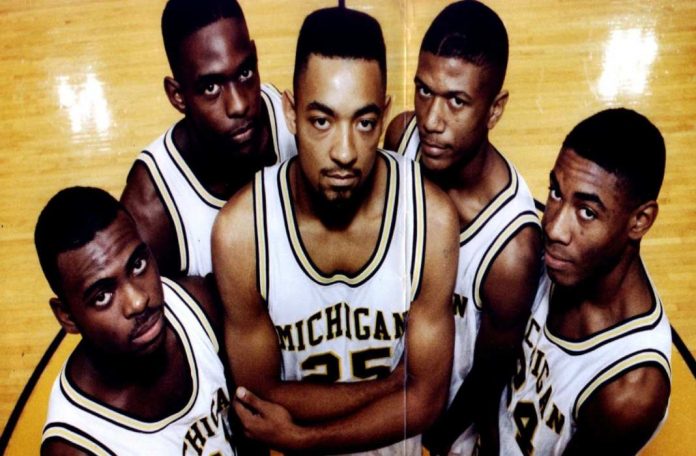Everywhere you look basketball players are wearing shorts that cover their ankles. It wasn’t always like that. Players used to wear the high socks, converse shoes, and short-shorts that exposed more than we’re used to seeing on the court in today’s game. In 1991, the game of basketball changed forever. This is when we saw brands like Nike, Adidas, and Reebok really start to shine; leaving Converse on the backburner.
It’s been a trend for many years, but do you ever wonder where it originated from?
It all started with Michigan’s Fab 5. The University of Michigan acquired five iconic and talented freshman to jump-start the 1991 NCAA season. In the ’90s, players would be seen with high shorts that barely reached below their thigh. Jalen Rose, Chris Webber, Jimmy King, Juwan Howard, and Ray Jackson set out to change the game forever.
Michigan kept breaking headline after headline that season, ranking them top-five in the country. They revolutionized the game with their play-styles and flashiness when they attacked the rim and their celebrations when they drained a jump shot from 30-feet.
The Fab Five started wearing their shorts below the knees and rocked the slick black Nike socks. The best part about this whole controversy was that Michigan was winning game after game; making the trend worldwide. When you think of Fab 5 the term “swag” comes to mind due to the attire worn by these five.
One of the greatest recruiting classes to ever to take the court; these five young studs went against the norm and brought the “streets” to organized basketball. I can remember a reporter referring to that term, but it didn’t resonate with many people. The Fab Five modernized the game of basketball from an amateur level, and the trend is implemented in everyday society in the sport. Later that season, the NBA made rule changes and eliminated the reign of high-shorts forever.
In today’s game, the NBA is flashier than ever, but it would’ve never gotten this way if it wasn’t for the 1991 Michigan Wolverines. They changed the image of the game without winning an NCAA championship.

